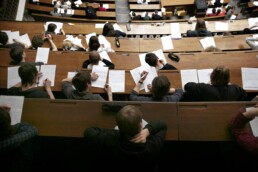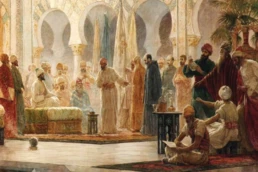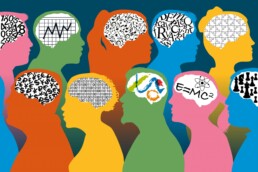Islam attracts all sorts of people, from those looking for a sense of community, fleeing a dysfunctional life, or looking for a cause, to those who aren’t necessarily looking for something but simply come to be convinced of the genuine Abrahamic conception of God and the wider existential narrative preached by his descendant, Muhammad, the final messenger of God.
Yet one thing I’ve consistently noticed over a decade is how community leaders, activists and Muslim spokespersons are rarely (if at all) from the latter. They tend to either be those who found a (secular) cause in Islam or saw the faith as an extension of their ethnic identity that they were attempting to protect against rising racial prejudice we see across western societies. Very rare has it been to have someone speak on behalf of the faithful who simply believes Islam is a justifiable and convincing position to hold and has little baggage from the past. One would have had to have thought about these things deeply and engaged with the revealed word, which very few seem keen on actually doing.
It’s sad to admit it, but there’s a dysfunctionality in most things ‘Muslim’ in Britain, including religious and political leadership. The evidence for this is the fact that we’ve been largely stuck in the same place, both religiously and politically, for a few generations. Mostly, religiosity is either ethnic protest or a set of rituals that hold little meaning and a theology that advocates things not making sense. To justify the irrationality, we look to mysticism and advocate a superstitious attitude. Can we afford this to continue on with our children and do we believe this will seriously motivate them in an increasingly materialist world? If they grow up to share their misgivings about Islam we’ll only have ourselves to blame.
There’s nothing novel, innovative, or constructive in what we’re doing. There’s no imagination nor an active will to actually lead – political Muslim leaders are driven by the arbitrary and unschooled whims of those they’re simply vying to represent. Under the guise of unity everything is merely about playing up to everyone’s individual sensitivities so as not to ruffle any feathers, so nothing really moves or changes as they’re busy navigating between everyone’s competing interests.
Think about it: decades on, Muslims are still having the same debates about moonsighting or the amount of rak’at in tarawih. In politics it’s still about protesting against securitisation, asinine comments from politicians, or prejudice against BAME minorities. One would have thought various types of ‘leaders’ would’ve figured out a better way to deal with all of these by now.
Of course, as parents this isn’t what we want our kids to inherit, and as believers we ought to be sick of it ourselves. If this was the documented achievement of a political party whilst in government, would you really vote for it at the next election? And if we have no say in what has become the state of communal affairs, is it really in our interests and that of our families to associate with a wider group that not only refuses to move forward, but can be self-destructive and self-harming? Which reasonable person opts to be identified with this?
Some believe that we should rectify what’s already there, and admittedly, I’ve advocated this myself in the past. But this largely comes from people who have little experience in the rectification they’re advocating, or cannot visualise anything other than the status quo, so cannot see the point of constructing something afresh, something positive and deeply informed, something we’d actively want our children to be socialised into. How does it make sense to heavily invest the resources, time or energy to challenge a status quo rather than build something productive for far less, and how exactly are we morally obliged to? It makes sense that our investments should no longer be in buildings that simply equate to walls and smelly carpets, or those who play up to Muslim ethnic sensibilities, but the actual sites and sources of socialisation that’ll better us, our families and our godly contributions to God’s earth.




